2025 Awards Winners
The KiwiNet Awards celebrate heroes in research commercialisation — those individuals and organisations whose best practice approach is changing the innovation landscape in New Zealand. We congratulate the 2025 winners!
Momentum Student Entrepreneur Award
This award recognises a highly motivated university student who looks beyond the science and sees the prize - how their idea can change the world. The student is making outstanding contributions to business innovation or has created innovative businesses in New Zealand through technology licencing, start-up creation or by providing expertise to support business innovation.
Josiah Bugden: CourseSpy/ University of Otago – Ōtākou Whakaihu Waka
Creating transparency in higher education
What began as a side-project for student founder Josiah Bugden has evolved into a platform with over 200,000 visits, helping students to make better and more informed decisions about their university study.
Josiah is a medical student and founder of CourseSpy.com, a rapidly growing platform helping students navigate university life with confidence. Frustrated by a lack of clarity when trying to choose his university papers, understand degree requirements, and access quality course advice, Josiah set out to build the all-in-one tool he wished he had.
CourseSpy now hosts over 15,000 course reviews across all eight New Zealand universities and has helped students plan more than 700 degrees. CourseSpy empowers students to make informed decisions through peer-shared advice, planning tools, and increased transparency in higher education.
CourseSpy has evolved to be more than a review site. It allows students to plan their degrees, calculate entrance scores, manage timetables, choose accommodation, and access curated study resources - removing the administrative burden so they can focus on learning. Josiah's goal is to continue scaling CourseSpy by adding tutors, textbooks, and further developing modules for CourseSpy's proprietary learning platform, while looking to expand overseas in the near future.
Despite starting with no coding or business experience, Josiah has shown a true entrepreneur spirit, learning along the way through trial and error. Over the past year, Josiah has worked closely with universities, student associations, and fellow students to build a platform that meets their needs.
Josiah is passionate about building tools that make a real difference and supporting others in the startup space, with a goal to set a new standard for student support worldwide.
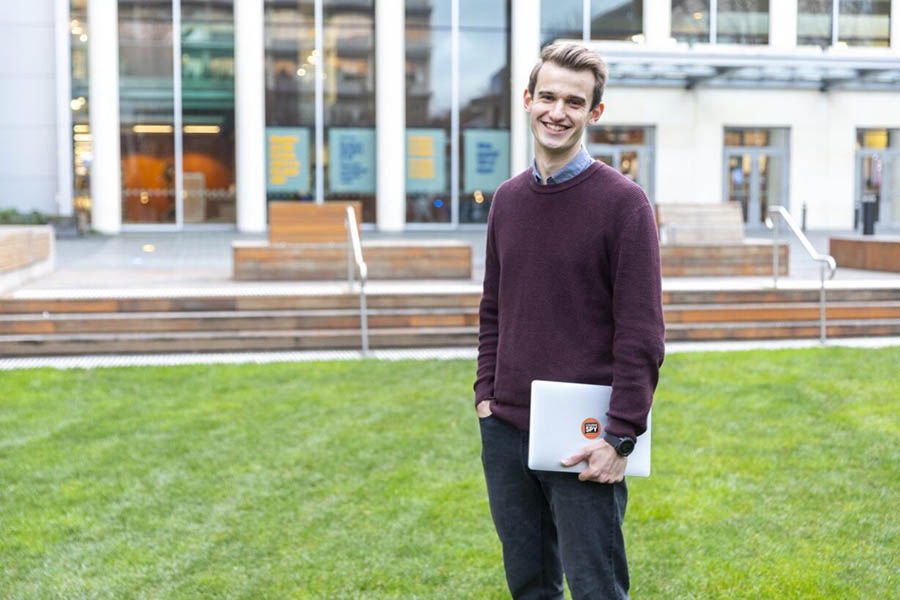



Ara Ake Breakthrough Innovator Award
This award recognises an upcoming entrepreneurial researcher who is making outstanding contributions to research commercialisation in New Zealand through technology licencing, start-up creation or commercial partnerships leading to the creation of new products and/or services from publicly-funded research.
Dr Ben Mallett – The MacDiarmid Institute, Wellington UniVentures, Paihau Robinson Research Institute
Propelling New Zealand to the frontiers of deep space
Dr Ben Mallett is a senior scientist at Paihau-Robinson Research Institute at Te Herenga Waka—Victoria University of Wellington and co-founder of JxB Space Systems, a new spinout company set to position New Zealand as the home of next-generation spacecraft propulsion.
Since joining Paihau-Robinson in 2021, Ben has played an integral role in the space team’s development of advanced space technologies that require superconducting magnet systems, such as their next-generation spacecraft propulsion system. For the Heki mission to the International Space Station, set for launch later in 2025, he led the development of the flux pump. This superconducting device pumps current into the main superconducting magnet using significantly less power than conventional technology. He also led an international collaboration to develop the critical capability to test the performance of the new propulsion system.
Realising the transformative potential of the propulsion technology requires taking it from the lab and into widespread commercial use. This ambition led Ben to build the business case for JxB. In October 2023, Ben was accepted into a competitive global space accelerator, where he refined JxB’s business model, forged strategic investor and B2B partnerships, and deepened his commercial expertise – all while advancing technical milestones.
JxB aims to unlock a future where it will be economical to routinely travel into deep space, discover our solar system, and utilise space to lessen our impact on Earth. As the US$4 billion/year in-space propulsion market seeks more powerful electric thrusters and responds to crowded low-Earth orbits, JxB will supply the superconducting propulsion system to meet market needs.
Ben’s focus on aligning diverse teams across Paihau-Robinson, Wellington UniVentures and the MacDiarmid Institute has earned him wide respect and is critical to JxB’s success. As a founding member of CHIASMA Wellington, he continues to build a legacy of translating science to impact, driving New Zealand towards the frontiers of deep space.
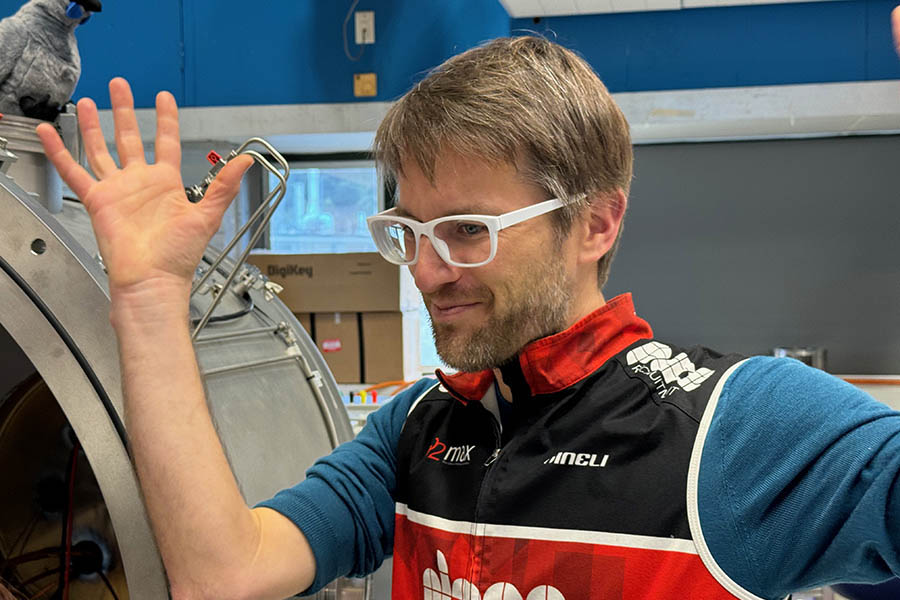


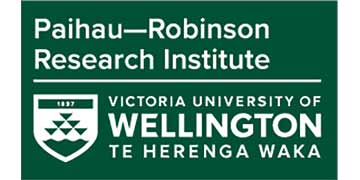
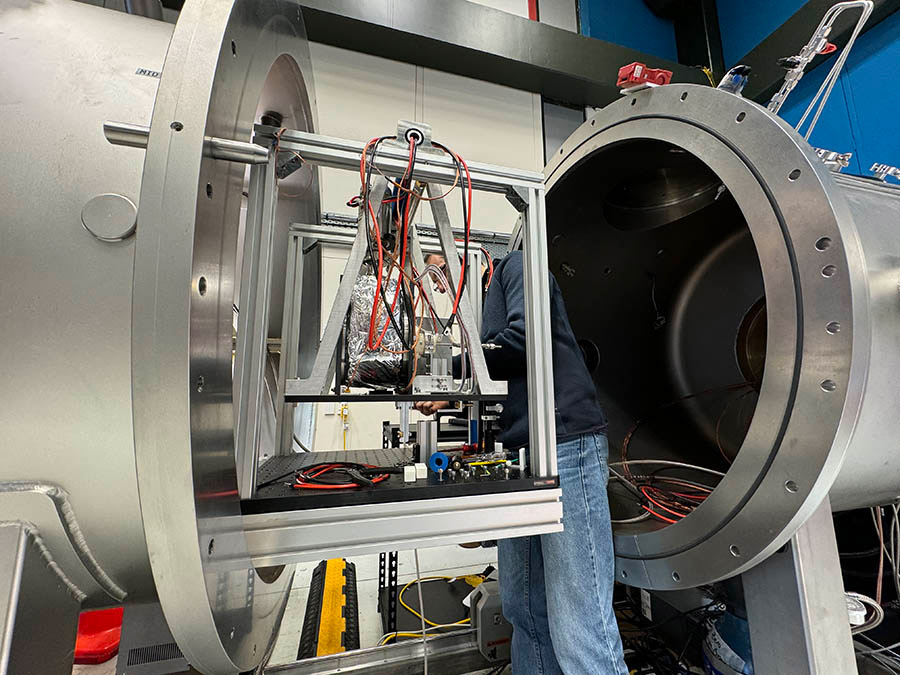
Demonstrator spacecraft propulsion system in the test facility at Paihau-Robinson.
BNZ Researcher Entrepreneur Award
This award recognises an experienced entrepreneurial researcher who consistently delivers real world impact from their research.
Professor Aaron Marshall - University of Canterbury and MacDiarmid Institute
An inspiring visionary in clean-tech innovation
Professor Aaron Marshall is an internationally recognised electrochemist, co-founder of clean-tech start-ups, and champion of commercialisation. He is leaving a legacy of breakthrough research and real-world solutions that tackle urgent global challenges.
As co-founder of Zincovery, a University of Canterbury spin-out launched in 2020, Aaron is helping to revolutionise global metals recovery – taking waste from steel manufacturing to produce zinc more sustainably.
Aaron was instrumental in pivoting the technology to meet market demands and identifying critical IP. In 2024, Zincovery closed a major investment round and has secured over NZ$500M in offtake agreements, paving the way for its first demonstration plant in New Zealand.
In 2023 Aaron co-founded Ternary, an on-demand, zero-emission hydrogen energy system for the transport sector. Through Aaron’s leadership and networks, the technology scaled from lab bench to full-size industrial stacks in under a year.
Ternary has rapidly expanded, now employing a core team of 17 engineers and scientists. In addition, they contract researchers across five international and national institutes, bringing cutting-edge expertise to their development programme. This growth reflects the strong global interest in their technology and their commitment to accelerating innovation through a world-class team.
While he has secured over $25M in university research funding and earned 4000+ citations, Aaron’s legacy lies in his championing of commercialisation and his mentorship of the next generation, leading to a culture of innovation across the University of Canterbury, MacDiarmid Institute, and the wider CPN ecosystem.
Aaron is a pioneer of the clean-tech industry, putting New Zealand on the map for sustainable technologies and inspiring entrepreneurs across the country.
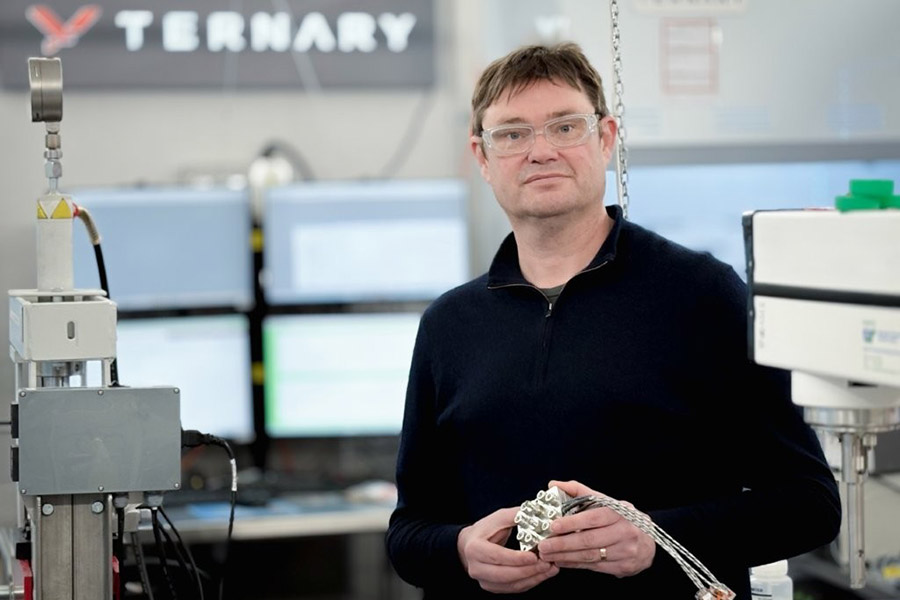



KCA Commercialisation Professional Award
This award recognises a commercialisation professional working within a New Zealand research organisation who has made an outstanding contribution to the commercialisation of publicly-funded research.
Sue Muggleston - Plant & Food Research/Bioeconomy Science Institute
A legacy of IP excellence and growing future leaders
Sue Muggleston was a driving force behind commercialisation at Plant & Food Research and its predecessors for more than 40 years – leaving a legacy that’s transformed how the organisation protects and unlocks the value of intellectual property.
Since becoming Intellectual Property Manager at Plant & Food Research in 2000, Sue has played a central role in developing the organisation’s IP systems, resources and capability, putting IP at the heart of their innovation efforts. Her work has transformed company culture, making IP a core part of how researchers think and operate.
Sue supported business cases for PreSeed Accelerator Fund projects totalling $3.35 million over the past decade and assisted deal teams with in-licensing and out-licensing diverse technologies. At every stage, she championed the importance of protecting IP – leading training initiatives and working closely with staff to make sure great ideas have the best chance of making it to market.
Sue’s passion for growing people has had a lasting impact. She developed Bioeconomy Science Institute’s in-house Core Business Skills programme, helping more than 150 staff gain business skills and deepen their understanding of science commercialisation. Many programme graduates – and others she has personally mentored – have gone on to senior roles in startups, science, industry and investment, both in Aotearoa and internationally.
Sue’s influence reaches far beyond Bioeconomy Science Institute. She is widely regarded as an IP thought leader, with nearly 25 years of involvement in the Licensing Executives Society, and as a long-standing supporter within the University of Auckland’s Master of Bioscience Enterprise and Master of Commercialisation and Entrepreneurship programmes.
Sue recently retired from Plant & Food Research, now part of the Bioeconomy Science Institute, marking the end of an era – but her impact continues. Her open, collaborative approach and commitment to sharing knowledge have created ripple effects that will be felt for years to come.



PwC Breakthrough Project Award
The Breakthrough Project Award is awarded to a project that has recently achieved spin-out, license deal, or major capital raise, and demonstrates best practice commercialisation of publicly funded research.
CAR-T Therapy – Malaghan Institute of Medical Research
Engineering the future of cancer care in New Zealand
Over 22,000 people are diagnosed with blood cancer each year in NZ and Australia, with more than 6,000 expected to lose their lives in 2025 alone. Recent breakthroughs in the Malaghan Institute’s novel cancer treatment, CAR-T therapy, are now unlocking new options for patients and global opportunities for New Zealand.
Chimeric Antigen Receptor T cell (CAR-T) therapies represent a powerful and personalised approach to treating cancer. They harness the patient’s own immune system to target and destroy cancer cells – offering hope where conventional treatments fall short. However, barriers such as high manufacturing costs and safety factors have made CAR-T therapies difficult to implement in New Zealand’s health system.
This led Clinical Director Dr Rob Weinkove, Deputy Director Professor Ian Hermans, and General Manager Mike Zablocki to form an international partnership to develop a viable CAR-T programme tailored to local needs.
What followed was a commercialisation process years in the making and involving many ‘firsts’ for New Zealand. This included leveraging a world-class collaboration with Chinese partners to establish Wellington Zhaotai Therapies Ltd, creating a GMP-compliant manufacturing process and licensing a local manufacturing facility, setting up all regulatory and clinical trial infrastructure from scratch, and bringing together a multidisciplinary network of scientists, clinicians, and business development and regulatory experts.
In 2023, the Phase I ENABLE trial was successfully completed in New Zealand, unlocking over NZ$10 million in private investment for a Phase II trial, attracting international attention, and leading to the creation of BioOra in 2024, a Bridgewest Ventures–backed biotech startup focused on automating CAR-T manufacturing.
With Phase II trials underway, Malaghan Institute’s CAR-T product is now on the cusp of an even bigger breakthrough: being delivered to the public as a viable and accessible treatment option, and positioning New Zealand as a global leader in next-generation medicine.
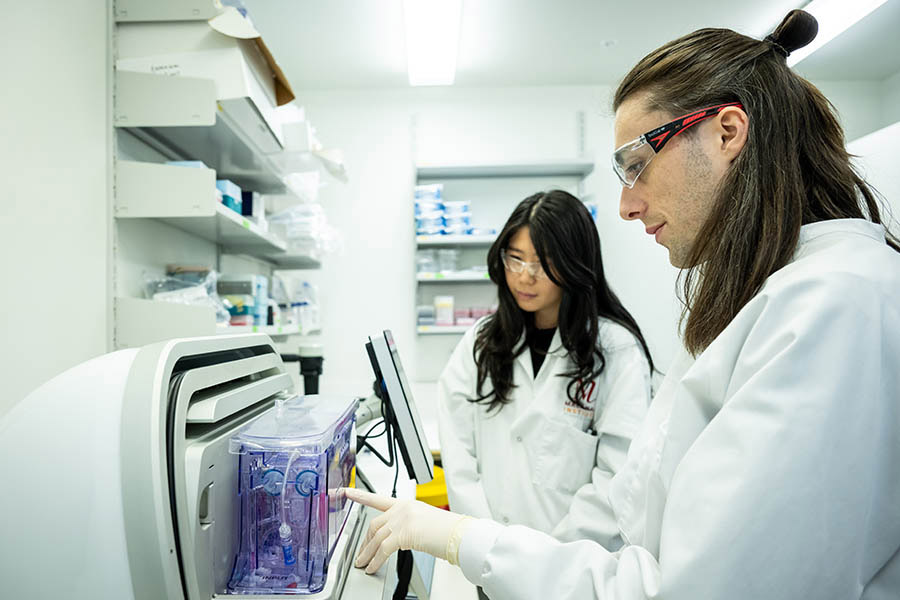

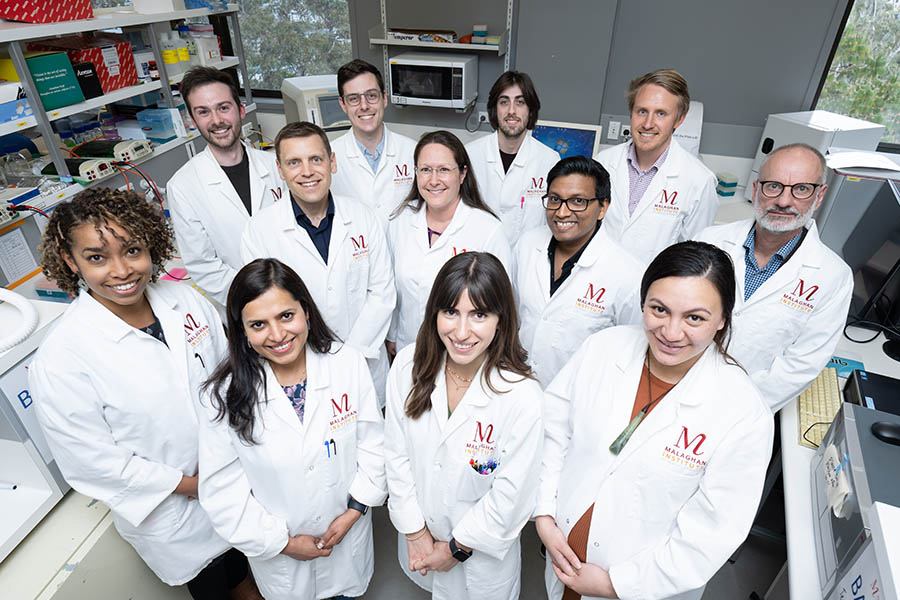
AJ Park Commercialisation Impact Award
The commercialisation impact award celebrates a project delivering outstanding innovation performance and generating significant impact for New Zealand, whether environmental, social, job creation, or direct or indirect impact on export earnings.
Potato Innovation ‘Crop 78’ - Bioeconomy Science Institute
A sustainable French fry future
A stand-out potato variety developed by the Bioeconomy Science Institute that produces higher yields with less environmental impact, is challenging the status-quo of the global French fry market.
Russet Burbank has become the gold standard for French fries in fast food chains globally. But despite its cooking quality it has considerable drawbacks, and there has long been the need for more sustainable potato varieties that can deliver to the exacting standards of the global French fry market.
Bioeconomy Science Institute have done just that. ‘Crop78’ is a new potato variety with excellent cooking quality that is outperforming the others - consistently delivering high yields, strong disease resistance, efficient water use, and resilience to cold-induced sweetening that negatively impacts performance. It has proven to deliver 36% higher yield with half the standard nitrogen inputs. This is a significant environmental saving that is creating major benefits for the industry.
‘Crop78’ is now in commercial production in New Zealand and advancing rapidly towards international uptake.
Currently used by Balle Bros Group Ltd – the company behind New Zealand’s leading Mr Chips brand – ‘Crop78’ already accounts for 11% of their French fry supply and is quickly scaling. Mr Chips produces over 35,000 tonnes of potato products each year for both domestic and export markets.
International expansion is also underway with Simplot, a pioneer of the frozen French fry with large-scale processing facilities worldwide. After eight years of trials, Simplot has approved ‘Crop78’ for commercialisation in Australia, where it processes over 300,000 tonnes of potatoes annually.
Other major milestones, including being approved for use by a major global fast-food chain, mean that ‘Crop78’ is set to shake-up the global French fry supply chain and deliver a more sustainable future for the world’s favourite chip.

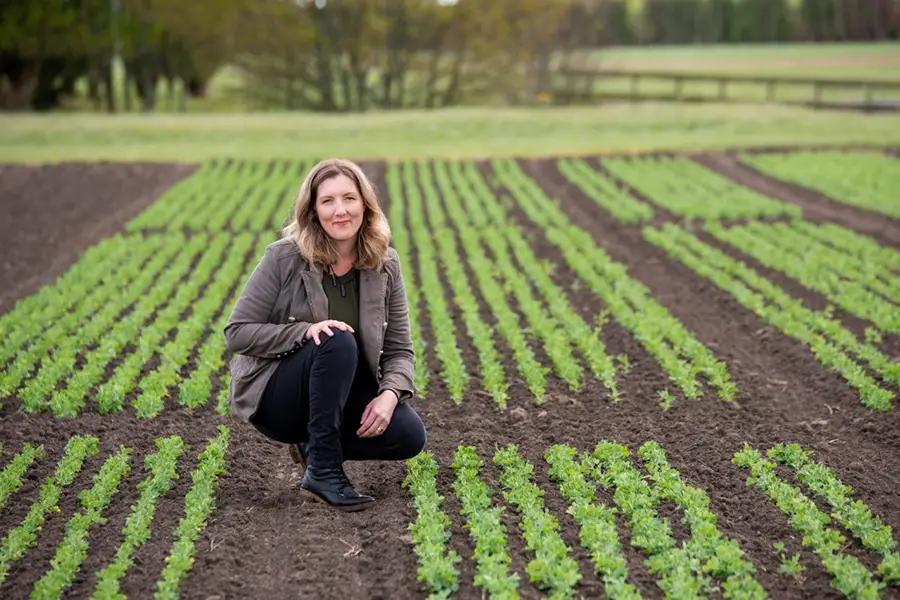

KiwiNet Commercialisation Icon Award, sponsored by Sprout Agritech
This is KiwiNet’s highest honour given to a quintessential champion of New Zealand’s research commercialisation community. This individual has a high level of aspiration for research commercialisation as a catalyst to deliver prosperity for all. This is demonstrated by their unwavering commitment to substantially advancing the cause and activity of commercialisation of publicly funded research within New Zealand. Their body of work has made an outstanding impact on the research commercialisation ecosystem.
Suse Reynolds - Start-up Investor/ Executive Director, Angel Association NZ
Championing New Zealand innovation, investment and impact at home and on the world stage
Suse Reynolds is one of New Zealand’s most respected voices in innovation, investment, and entrepreneurship. Best known for her leadership as the former Executive Chair of Angel Association New Zealand (AANZ), Suse has played a defining role in shaping a stronger, more connected startup and investment ecosystem that underpins the nation’s ability to translate research into impact. She co-founded AngelHQ, Wellington’s angel investor network, and continues to be an active investor and mentor, supporting a diverse portfolio of ventures.
Suse has provided national leadership through the government-appointed Startup Advisors Council, helping to steer policy and system-level coordination to strengthen New Zealand’s innovation pipeline and accelerate pathways from research to global markets. Her work has continued through her ongoing efforts to drive a more joined-up, outcomes-focused approach across the startup and commercialisation ecosystem — ensuring that early-stage investment, entrepreneurship, and research commercialisation work in concert to deliver prosperity for Aotearoa.
A passionate advocate for “New Zealandness” on the world stage, Suse combines deep policy insight with a practical, can-do attitude. Her career, which began in the Ministry of Foreign Affairs and Trade and included a diplomatic posting in London, reflects a lifelong commitment to advancing New Zealand’s place in the global economy through innovation, collaboration, and leadership.



